- An Australian study found that pop and rock stars die 25 years younger than the average person and have higher rates of death by accident and homicide.
- None of the Beatles could read or write music.
- The most expensive musical instrument in the world is a Stradivarius violin that sold for $15.9 million.
- People prefer the original versions of songs because it’s the first version they heard, not because it’s better.
- A 2007 study found that music, especially classical music, helps plants grow faster.
- The song “One Horse Open Sleigh” was written as a Thanksgiving tune to honour sleigh races happening in Massachusetts. People liked it so much they altered the lyrics to create the popular Christmas song “Jingle Bells”.
- Fast music will make you drink faster and louder music in a bar will make you drink more in a shorter period of time.
- During the 1989 US invasion of Panama, the US military blasted AC/DC at General Noriega’s compound for two days straight. The dictator surrendered.
- Warner Music Group collects approximately $2 million/year in licensing fees for the song “Happy Birthday To You”.
- Elvis Presley didn’t write any of his songs despite being credited for several of them. He also couldn’t play guitar very well and just strummed along with the band.
- Rapper NoClue set the world record in 2005 for fastest rapper by rapping 723 syllables in 51.27 seconds.
Music Fast Facts – Week 7
Part 2 of the 2 part article on how music affects your brain.
7. Your heartbeat changes to mimics the music you listen to.

Music is found to modulate heart rate, blood pressure, and respiration. The cardiovascular system mirrored deflating decrescendos, and swelling crescendos in a study of 24 volunteers. Distinguishing changes in sound patterns were even found to be equipped in those as small as a developing fetus.
8. Listening to happy vs. sad music can affect the way you perceive the world around you.
The brain always compares the information that comes through the eyes with what it expects about the world, based on what you know. The final results in our mind is what we perceive as our reality. Therefore, happy songs that lift your spirits make you see the world around you differently then that of a sad person.(source)
9. An “earworm” is a song that you can’t seem to get out of your head.
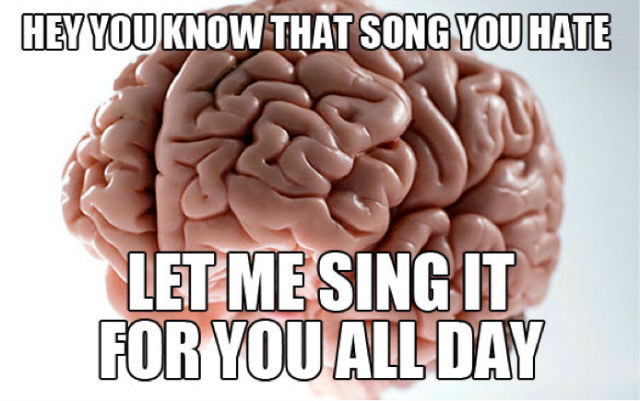
An earworm is a cognitive itch in your brain. This “brain itch” is a need for the brain to fill in the gaps in a song’s rhythm. The auditory cortex is a part of your brain that will automatically fill in a rhythm of a song. In other words, your brain kept “singing” long after the song had ended.(source)
10. Music triggers activity in the same part of the brain that releases Dopamine, the “pleasure chemical”.
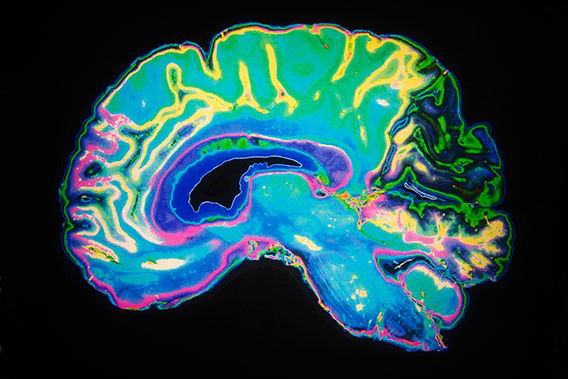
The nucleus accumbens is a part of your brain that releases Dopamine during eating, and sex. The most interesting part, is that the nucleus accumbens is just a small part of the brain that gets effected by music. It also effects the amygdala, which is the part of the brain used to process emotion. for music.(source)
11. Music is often prescribed to patients with Parkinson’s Disease and stroke victims.

Music therapy has been around for decades. Music triggers networks of neurons into organized movement. The part of the brain the processes movement also overlaps speech networks. These two key elements help patients overcome the obstacles that most effect them such as basic motor skills, and speech difficulties.(source)
12. According to a study, Learning a musical instrument can improve fine motor and reasoning skills.
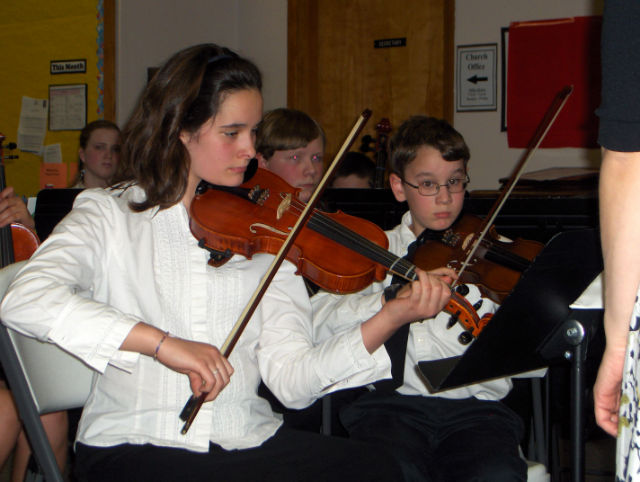
In a study of children, it revealed that those with three or more years of musical training preformed better in fine motor skills and auditory discrimination abilities then those who had none. They even tested better for vocabulary and reasoning skills, even though those are quite separate from music training.(source)
Music Fast Facts – Week 6
This is the first of a two part article that very briefly explains how Music affects your brain. You will be amazed.
Hello 2018!!!
The brain can work in ways we can’t comprehend. In numerous studies they have been able to see just how much normal things like music can effect, and even alter, it completely. These facts about music will give you an insight into the complexity of your own mind.
1. The chills you get when you listen to music, is mostly caused by the brain releasing dopamine while anticipating the peak moment of a song.

Dopamine is a feel-good chemical released by the brain. This chemical is directly involved in motivation, as well as addiction. These studies found a biological explanation for why music always has been such a huge part of emotional events around the world since the beginning of human history.(source)
2. There are few activities in life that utilizes the entire brain, and music is one of them.
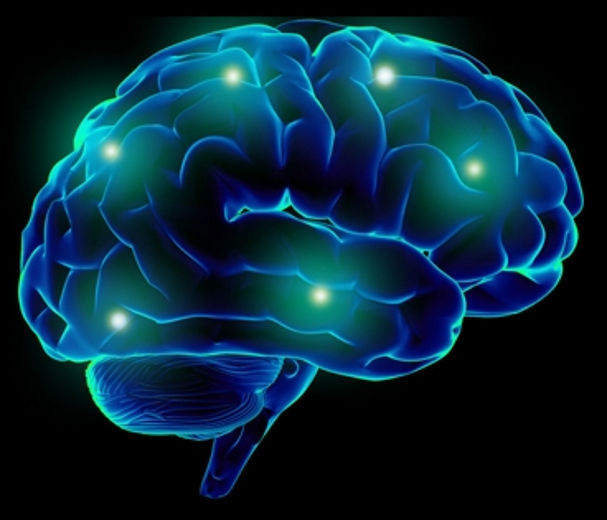
With Functional Magnetic Resonance Imaging (FMRI), a research team recorded a group of individuals who were listening to music. They found that listening to music recruits the auditory areas, and employs large-scale neural networks in the brain. In fact, they believe music can activate emotional, motor, and creative areas of the brain.(source)
3. Playing music regularly will physically alter your brain structure.

Brain plasticity refers to the brain’s ability to change throughout life. Changes associated with learning occur mostly at the connections between neurons. When studying musicians, they found that the cortex volume was highest in professional musicians, intermediate in amateur musicians, and lowest in non-musicians.(source)
4. The brain responds to music the same way it responds to something that you eat.
As stated above, dopamine is a chemical released by the brain. This chemical is connected with the feeling of euphoria which is associated with addiction, sex, and even eating. Dopamine is what enables a person to feel the pleasures of such things. A study using only instrumental music proves that anticipation for a musical rush released the same kind of reactions in the brain as anticipating the taste of your food.
5. Listening to music while exercising can significantly improve your work-out performance.

Dissociation is a diversionary technique which lowered the perceptions of effort. This technique can divert the mind from feelings of fatigue, and heighten positive mood states like vigor. By using music during low to moderate exercise intensities, you will find yourself with an overall more pleasurable experience while working out.(source)
6. An emotional attachment could be the reason for your favorite song choice.
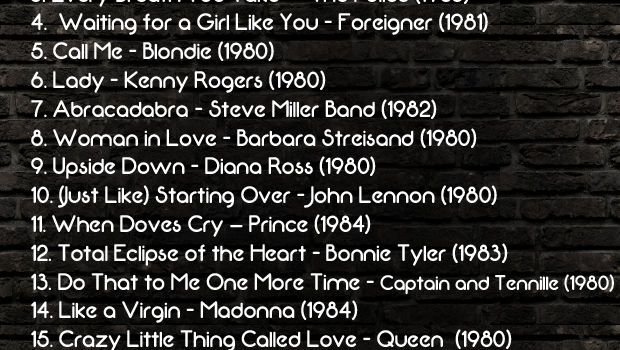
Favorite songs are often context-dependent. Even though many people often change their favorite song depending on the most recent releases, it is proven that long-lasting preferences are due mainly to an emotional attachment to a memory associated with the song.(source)
Music Fast Facts – Week 5
- The first pop video was Bohemian Rhapsody by Queen, released in 1975.
- Themes from movies Unforgiven, A Perfect World, The Bridges of Madison County, and Absolute Power were all written by Clint Eastwood.
- The only guy without a beard in ZZ Top last name (surname) is Beard.
- Since its launch in 1981 the song “Memory” of the musical Cats has been played on radio more than a million times.
- Paul McCartney was the last bachelor Beatle when he married Linda Eastman in a civil ceremony in London, 1969. Paul’s brother Mike was his best man. No other Beatle attended the wedding.
- There are 6 versions of Franz Schubert’s “Die Forelle” (“The Trout”), simply because when friends asked him for copies of the song, he wrote out new copies to the best he could remember at the time.
- In 1952, John Cage composed and presented 4’33”, a composition consisting of 4 minutes and 33 seconds of silence.
- The Carpenters signature song, “We’ve Only Just Begun,” was originally part of a television commercial for a California bank.
- In 1972, Leslie Harvey of Stone the Crows died after being electrocuted onstage in England. In 1976 Keith Relf, who used to play for The Yardbirds, was electrocuted by his guitar while playing in his basement.
- During a mid-performance in 1994 Ramon Barrero, a Mexican musician famous for playing the world’s smallest harmonica, inhaled the harmonica and choked to death.
- The Beatles holds the top spot of album sales in the United States, with 178 million sold. They also hold the top spot for singles sales – 1.6 billion.
- Following The Beatles on the chart for highest-certified music artists in the United States are Garth Brooks (148 million albums), Elvis (136 million) and Led Zeppelin (112 million).
Music Fast Facts – Week 4
- Annie Lennox has won more Brit awards (8) than any other female artist.
- Ireland has won the most Eurovision song contests (7 times).
- Klezmer music is derived from two Hebrew words, clay and zimmer, meaning “vessel of music.”
- The Ocarina, a musical wind instrument, is also known as the Sweet Potato.
- A grand piano can be played faster than an upright (spinet) piano.
- A piano covers the full spectrum of all orchestra instruments, from below the lowest note of the double bassoon to above the top note of the piccolo.
- The last note of a keyboard is C.
- The biggest per capita music markets, in order, are Norway ($25 per person per year), UK, Sweden, Japan, Germany, Australia and United States ($15). China has the smallest per capita music spending, at less than a dollar per person.
- The longest living person on record, Jeanne Louise Calment (21 February 1875 – 4 August 1997), released a CD on her 121st birthday in 1996. Titled “Time’s Mistress” it features Ms Calment reminiscing to a score of rap music and other tunes.
- “Guess Things Happen That Way” by Johnny Cash was the 10-billionth track sold on iTunes, February 2010. It was bought by Louie Sulcer of Woodstock, Georgia, who won a $10,000 (£6,500) iTunes gift card.
- The top selling singles of all time are Bing Crosby’s “White Christmas” (50 million), Elton John’s “Candle in the Wind ‘97” (33 million), Mungo Jerry’s “In the summertime” (30 million) and Bill Haley’s “Rock Around the Clock” (25 million).
Music Fast Facts – Week 3
- The Star-Spangled Banner became the US national anthem in 1931. Prior to that, it was My Country “Tis of Thee,” which had the same melody as Britian’s national anthem God Save the Queen, which is based on music written by John Bull in 1619. Bull’s melody has been used more than any song in national anthems.
- The British anthem was performed the most times in a single performance. In 1909, while waiting for King Edward VII who was getting dressed a German band played the anthem 17 times.
- The Beatles song “Martha My Dear” was written by Paul McCartney about his sheepdog Martha.
- Tap dancing originates from Irish clog dancing and what is called the Irish reel and jig.
- Elvis’s favorite collectibles were official badges. He collected police badges in almost every city he performed in.
- Elvis was an avid gun collector. His collection of 40 weapons included M-16s and a Thompson submachine gun.
- Duran Duran took their name from a mad scientists in the 1968 Jane Fonda movie Barbarella.
- Journey, formed in 1973 by Neal Schon, was originally called Golden Gate Rhythm Section. Journey has sold more than 70 million albums.
- The world’s largest disco was held at the Buffalo Convention Centre, New York, 1979. 13,000 danced a place into the Guinness Book of World Records.
- In August 1983, Peter Stewart of Birmingham, UK set a world record by disco dancing for 408 hours.
- The real name of Lorde is Ella Maria Lani Yelich-O’Connor. See more Real Names of Famous Musicians.
Knowledge: The Power of Music Education
It’s not music propaganda when we say that Music has a profoundly beneficial impact on our lives. The following 11 facts come from the DoSomething.Org website and is a wonderful list of why encouraging, participating in, enjoying and experiencing music is essential to your well being.
- Children who study music tend to have larger vocabularies and more advanced reading skills than their peers who do not participate in music lessons.
- Children with learning disabilities or dyslexia who tend to lose focus with more noise could benefit greatly from music lessons.
- Music programs are constantly in danger of being cut from shrinking school budgets even though they’re proven to improve academics.
- Children who study a musical instrument are more likely to excel in all of their studies, work better in teams, have enhanced critical thinking skills, stay in school, and pursue further education.
- In the past, secondary students who participated in a music group at school reported the lowest lifetime and current use of all substances (tobacco, alcohol, and illicit drugs).
- Schools with music programs have an estimated 90.2% graduation rate and 93.9% attendance rate compared to schools without music education, which average 72.9% graduation and 84.9% attendance.
- Regardless of socioeconomic status or school district, students (3rd graders) who participate in high-quality music programs score higher on reading and spelling tests.
- A Stanford study shows that music engages areas of the brain which are involved with paying attention, making predictions and updating events in our memory.
- Much like expert technical skills, mastery in arts and humanities is closely correlated to a greater understanding of language components.
- Young children who take music lessons show different brain development and improved memory over the course of a year, compared to children who do not receive musical training.
- Schools that have music programs have an attendance rate of 93.3% compared to 84.9% in schools without music programs.
Music Fast Facts – Week 2
- Kenneth Edmonds was nicknamed Babyface by funk bassist and singer Bootsy Collins.
- At the first Grammy Awards, held on 4 May 1959, Domenico Modugno beat out Frank Sinatra and Peggy Lee for the Record of the Year, with “Volare.”
- Bob Dylan’s first professional performance was as opening act for John Lee Hooker at Gerde’s Folk City in New York, 1961.
- U2 was originally known as Feedback. To date, U2 have sold more than 70 million records.
- The Dave Matthews Band is the only group to have 6 consecutive studio albums debut at the top of the Billboard chart.
- In 2005, S. vinyl record sales generated $35 million U.S. dollars; in 2015, it had increased to $416 million.
- During the 2010s, 40 billion songs were downloaded illegally every year, that was approximately 90% of all music streaming.
- Top-selling albums used to reach sales of 20 million copies before the advent of online piracy – by 2009 it had dropped to about 5 million.
- During the 1990s, the number of recorded CDs and blank CDs sold were about equal.
- About one-third of recorded CDs ever sold were pirated.
- DVD discs are the same diameter (120mm) and thickness (1.2mm) as a Compact Disc (CD) but a DVD can store 13 times or more data.
Music Fast Facts – Week 1
Have you ever stopped to think about how much music impacts on, influences, enhances, alters…. our lives?
Over the coming months, we will bring you ten+ fast facts each week, starting with these gems. Enjoy!
- YouTube is the world’s largest on-demand music service.
- The harmonica is the world’s best-selling music instrument.
- The U.S. music industry generates more than $16 billion, 50% of which is in online music. Globally, the music industry generates more than $40 billion.
- To win a gold disc, an album needs to sell 100,000 copies in Britain, and 500,000 in the United States.
- Music was sent down a telephone line for the first time in 1876, the year the phone was invented.
- It was at a concert in Minneapolis in 1954 that Al Dvorin first closed Elvis’s concerts with: “Ladies and Gentleman, Elvis has left the building. Thank you and good night.”
- Ariana Grande (b. 1993) was the first person in history to have the lead single from each of her first three albums debut in the top 10 of the Billboard Hot 100.
- During 2015, Taylor Swift earned more than $1 million per day. (Taylor Swift Day is held annually on December 13.)
- The longest song to reach number one on the Billboard charts on LP was “I’d Do Anything For Love (But I Won’t Do That)” by Meatloaf, the shortest: “Stay” by Maurice Williams and the Zodiacs.
- The term “disc jockey” was first used in 1937.
- In May 1997, Paul McCartney broke his own world record by obtaining his 81st gold disc.
